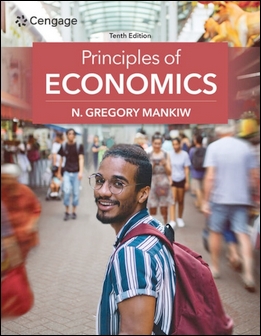書籍分類

(E-Book) Principles of Economics 10/e Vital Source (一年期) 與Asia 版本共用
作者:N. Gregory Mankiw
原價:NT$ 1,000
內容介紹 本書特色 目錄 作者介紹
- 電子書訂購前請先詳讀:
- Vital Source (一年期) 與Asia 版本共用
- 訂購付款完畢後,請填寫 電子書回報資料-官網訂單,資料若不全,將影響您後續派送權益
- 查看 電子書平台登錄與註冊說明
- 查看 電子書平台操作手冊
- 此訂單為電子書,非紙本課本,電子書兌換碼一旦派送,則無法辦理退貨。
- 若有任何問題請 Email 至 ebook@tunghua.com.tw
帳號訂購流程
Step 1 登入會員 非東華網站會員,請點選右上角『註冊』。
Step 2 點選 『加入購買』填寫相關資料,並確認訂單無誤後,即可送出訂單。
Step 3 審核訂單 訂購單會盡力於24小時內(遇周末假日順延)審核,確定有庫存,系統會發送『付款通知信』至指定信箱。
Step 4 付款 收到付款通知信後,請於七天內付款。
Step 5 電子書兌換碼 確認入帳後,約 1-3 個工作天派送電子書兌換碼,會發訊息至您的個人 email 信箱。
Overview
Gain a strong foundation in economics with today's most popular economics text, trusted by students like you worldwide -- Mankiw’s PRINCIPLES OF ECONOMICS, 10E. Using a clear, inviting writing style, this edition focuses exclusively on content to help you better understand the world and economy in which you live. You become a more astute participant in today's economic environment as you learn the potential and limits of economic policy. The latest examples and learning features clarify and bring economic principles to life as author Gregory Mankiw puts himself in the position of someone seeing economics for the first time. Dr. Mankiw's goal is to emphasize the material you will find most relevant and interesting as you study economics. MindTap digital resources, Aplia digital homework solution and author videos are also available to help you further master key economic principles.
分類位置:
商管 > 經濟 > 經濟學
其他圖書類 > 電子書


